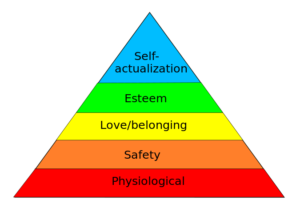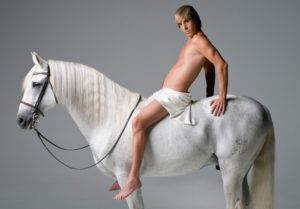
Today is Waitangi Day, the national holiday of New Zealand. Our national holiday is today because it commemorates the signing of the Treaty of Waitangi, the document of partnership between the native Maori tribes and the British pioneers that led to the founding of modern New Zealand.
Everyone knows that. Here’s something you probably didn’t know. In the original articles of Australian Federation, which are held for public viewing in the Australian National Museum, it stated clearly that only white people and Maoris were allowed to vote in Australian Federal elections.
Why Maoris?
The framers of the early Australian Constitution were no fools, but they were not right about everything. Back in the late 19th century when the desire for federalism swept the Australian continent in response to an ever-increasing majority of the people being native born, it was anticipated that New Zealand would join the nascent Southern nation as another state.
After all, New Zealand was born of exactly the same sociohistorical phenomenon as Australia – the British Empire – and the white majority of New Zealand was not much culturally different to the white majority of Australia.
There was one catch. The early framers of the Australian constitution knew that the New Zealand Maori had been treated in a significantly different manner to the Aborigines of Australia, and that race attitudes were very different across the Tasman Sea.
Maori New Zealanders have had their own Parliamentary representation since 1868, about a century before Australian Aborigines were considered proper human beings by their settler culture.
In other words, it has been known from the beginning that our attitude to the native people made us fundamentally different in mentality to our brothers across the ditch.
The reason why Maoris were given the right to vote in Australian Federal Elections from the very beginning – unlike any other non-white race on Earth – is because it was understood that white New Zealanders would simply not accept federation into Australia otherwise.
Let’s be very clear about something at this point: this relationship is not one-way traffic. This intent of this essay is not to glorify the mostly middle-class people who colonised New Zealand and contrast them with the mostly working-class people who colonised Australia.
The Treaty of Waitangi is a partnership agreement that the Maoris have lived up to. By the standards of most international treaties in history that makes it very rare – and very precious.
One time at a factory I worked at in Brisbane, a pack of local bogans had cornered me and one of our co-workers, a Maori fellow named John. They engaged us in a conversation about who would win in a fight between the two of us and the six or seven or them.
John grinned and said: “We Kiwis are lovers, not fighters.”
It was a cunning way to defuse the situation, and it ended in good cheer. But it occurred to me shortly afterwards, based on what else I had observed in my half a year in Australia about the relations between white Australians and Aborigines, that it was highly unlikely an Aborigine would find cause to say the same about a white Australian.
Can an Australian Aborigine genuinely look at a white Australian and see one of his own, in the way a Maori New Zealander can look at a Paheka? Of course not. In fact, nothing like it.
This column’s contention for Waitangi Day is this. Forget the attention whores, the tub thumpers, the race baiters, the shit stirrers, and all the other dickheads who have turned this day into a low-rent freakshow. Let them have their day in front of the peanut gallery.
They have tried to divide and conquer us, as the ruling classes always have done to the people they have ruled, but in this they have failed.
However, let’s not dwell on that.
Instead, let us focus on the fact that the way we Kiwis have conducted race relations since the foundation of New Zealand has left us with far fewer daily unpleasantries than people of most other European colonies.
On my first day in Sydney, I walked out of the train station and up the main street towards the central city. On a dirty, water-logged mattress shoved up against a brick wall were a group of Aborigines, drinking meths out of plastic bottles.
On one of the first days I spent in Los Angeles I cycled to Malibu from Manhattan Beach. At Malibu, one can look up to the hills and see houses built like castles on huge sections, each property surely worth eight figures. From the same spot, one can look down to the beach and see several dozen people who sleep in cardboard boxes, and all of them are black.
And these are stories about the Functioning World; the non-Functioning World has horror stories about the friction of cultural borders rubbing up against each other that one can hardly believe.
On Waitangi Day, let’s spare a thought for the naked fact that, in most of the rest of the world, race relations are so bad that your skin colour is akin to a uniform and every street akin to a battlefield.
We managed to dodge the vast bulk of that – partly through design, partly through goodwill, partly through luck. Let’s take this day to appreciate that.



